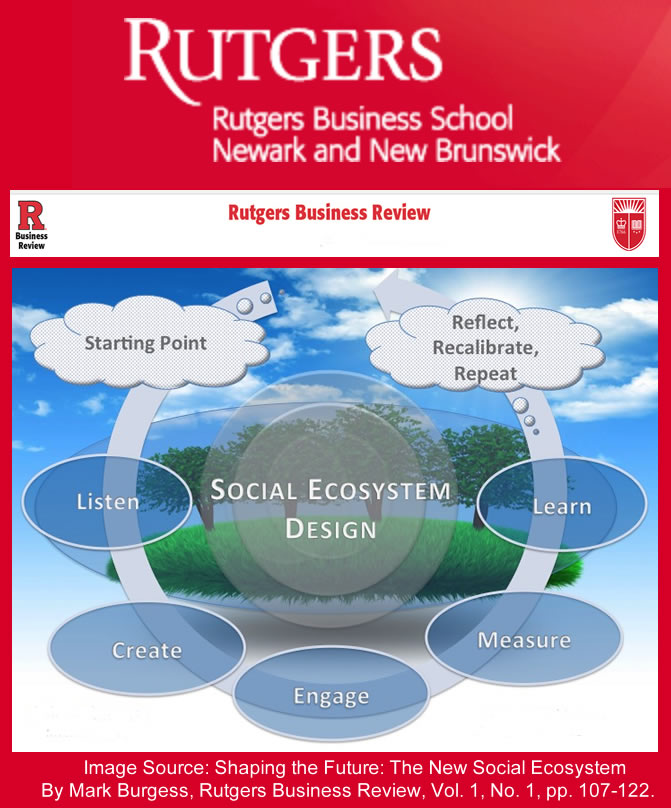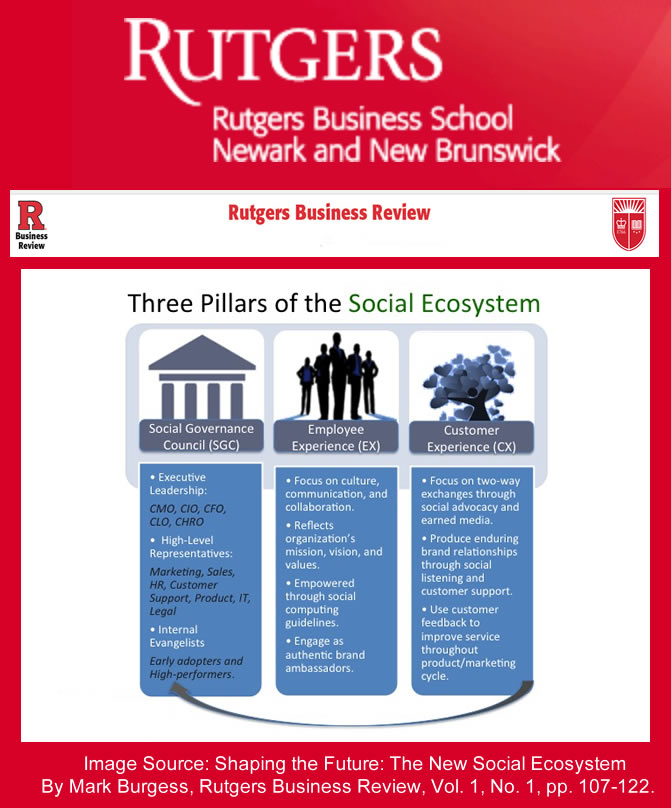“Is Marketing Talking to IT?”
The real question companies should be asking themselves isn’t, “Is marketing talking to sales?” but rather, “Is marketing talking to IT?” Or for that matter, “Is IT talking to marketing?”
Marketing – IT: Dysfunctional Behavior?
There was a time when marketers were a slave to the IT department because they didn’t understand how any of this worked. IT didn’t understand marketing concepts either. Technologists were never decision makers, yet they ruled their own world. Both departments created silos rather than collaborate. Hence “Turf Wars” and dysfunctional behavior were often the norm in many organizations.
No Respect
As reported by Chris Murphy, Senior Executive Editor, InformationWeek: “IT sees marketing as looking for shortcuts, shortcuts that will come back to bite the organization. Marketing, meanwhile, sees IT slowing them down, not delivering on the operational basics, and not understanding marketing needs.”
According to a recent study of over 300 CMO’s and 300 CIO’s, “The CMO-CIO Alignment Imperative”, sponsored by Accenture:
- 46 percent of marketing executives do not agree that their company’s CIO understands marketing objectives and requirements.
- Nearly two-thirds of marketers report challenges implementing marketing and IT solutions, citing the lack of priority given to marketing by IT as the chief reason.
- Only one-fourth of marketers consult enterprise IT, contact center, and back office groups in selecting and deploying marketing solutions.
According to the report, “The CMO Council believes there is a global imperative for marketing and IT organizations, which too often have been polarized and adversarial, to find common ground around the business of innovating more efficient, effective and measurable ways to target, acquire and stay intimately connected to customers. The need for greater synchronization, partnership and collaboration between these two groups has never been more critical to their mutual success.”
Customers Are A Moving Target
Today, your customer is a moving target. Working to identify the high value customers from average to low value customers helps you to focus on metrics such as customer lifetime value. The challenge is to provide high value customers with a consistent customer experience across all touch points.
Capturing knowledge about customers is as critical as using insights gleaned from data to help firms exceed customers’ expectations. This is where it is critical for the marketing team to be as knowledgeable and comfortable with technology as the IT department. Well, maybe they can’t write PHP code, but the marketing team does need to know IT’s capabilities — and limitations. Now, something very interesting happens. By understanding the technology, the marketing team is better able to communicate customer needs to their IT partner.
Departmental Harmony
Armed with an increased understanding of the marketing department’s requirements, IT can better leverage their in-depth knowledge to deliver the right solutions. Meaning, today it’s about achieving greater collaboration between marketing and IT. This new departmental harmony helps the firm achieve greater customer satisfaction which leads to higher retention and subsequently, greater lifetime value.
Rocket Scientists Needed
“The best rocket scientists — those that can understand and speak the languages of both technology and marketing — are moving out of the back office into significant leadership roles for their firms… Marketers and senior execs want access to their own personal ‘rocket scientists’ — people that can apply technology and data analysis to the art of marketing.” Brad Terrell, VP & General Manager, Digital Media, Netezza
Source: The “rocket scientists” of marketing (interview) Posted by Scott Brinker Jan. 19, 2011
Era of Digital Engagement
Enhanced marketing/IT communication leads to competitive advantage for the enterprise. It isn’t about making the marketing team or the IT team look smarter, it is all about satisfying the customer’s needs better than the competition. This is the secret of retaining good customers who will recommend the brand to non-customers. Through the power of social interaction, customers are now extolling the virtues of the brand like they have just been added to the sales force. Except, the key difference is that the customers’ recommendations add much more weight than any advertisement their agency can devise.
Reengineering Data – Voice of the Customer
In Scott Brinker’s Chief Marketing Technologist blog interview with Jonathan Mendez, Founder & CEO, Yieldbot, Jonathan said, “I think the largest change is the realization that data collection enabled by marketing technology is more than numbers, it is the voice of the customer.
“Data collection enabled by marketing technology is more than numbers,
it is the voice of the customer.”
Jonathan Mendez, Founder & CEO, Yieldbot
In Blue Focus Marketing’s blog, Marketer Trends for 2011, Mark Burgess, Managing Partner, predicted:
The “Marketing Technologist” role becomes even more critical. We predict that more marketers will understand the importance of forming a closer partnership between marketing and IT to build technology that meets customer needs and works. The “marketing technologist” must understand the ever-expanding onslaught of technology — now.
Would the IT department welcome a marketing team that knows almost as much about technology as they do? Would IT view this as an opportunity or a threat? Feel free to add your thoughts.
Follow us on Twitter:
Blue Focus Marketing @bluefocus360
















Hi,
Thanks for such a thought provoking read.
I believe anyone employed in the I.T sector should embrace an opportunity to work along side a Marketing Technologist.
Creativity and attention to fine detail is an absolute must when it comes to web designing. Without it, websites that we know, love and use today, might not be here.
The same can be said for a marketer. Their attention to fine detail has to be 100% correct, they create idea, after idea, and constantly feed information to the relevant sources.
I don’t see no reason why a marketing technologist can’t work with the I.T department, and utilize their creative ability to benefit the clients.
On a personal level I’m already taking steps to help bridge that technological gap by learning JavaScript and PHP, and I believe other marketers should follow suit and try the same.
@KingstonDJay
Jason,
Thank you for sharing your insights about the expectations of a marketing technologist.
In addition to marketing and technology, my other passion is creativity. At some point I would also like to write about the rise of the creative technologist. The creative technologist is a relatively new focus area in advertising and marketing.
It’s wonderful you’re learning JavaScript and PHP. While it’s not essential to master these two skills for a marketer, it does help if marketers have a very basic understanding of both. A little PHP never hurts.
Cheryl
Cheryl:
Great post on one of the more complex issues surrounding internal marketing departments. If you believe (as I do) that product development is a proper function for a strategic marketing group, then the Marketing – IT dysfunction is even more important to most businesses.
I can certainly identify with a number of the thoughts expressed above.
Thank you for another great post.
Sean
Sean,
Thank you for your comments. Marketing is one of the most misunderstood practices in business today. “Marketing is not only much broader than selling; it is not a specialized activity at all. It encompasses the entire business.” Peter Drucker.
Companies need to invest in talent, technology and implement processes bridging the gap that exists. Question is how do companies reach their goals? It requires the new levels of synchronization and
understanding between digitally savvy CMOs and customer-centric CIOs.
Cheryl
Very timely Cheryl. I just blogged today for Mobile Monday on the big failure of companies to format for Mobile. This is an IT vs Marketing issue. Ben Kunz tweeted a link from Ad Age praising Mullen and their work. I was on my Droid2. I clicked the link and up pops the article fitting my screen, unformatted so it is so teeny that I have to blow it up and move it around and eventually I closed it and said sorry won’t read it. And there are retail sites unformatted making it really hard to buy from your mini-computer which is our phones now.
This is particularly an issue intra-company. Why isn’t IT spearheading all communications using many tools of marketing like social communications technologies. Or implementing technologies to make marketing to consumers or B2B so much easier. It shouldn’t be a battle. Compensation plans should reflect these goals so that both sides win whether it leads to increased sales or decreased costs.
Howie,
Really great comments! Also, your resolution on my blog, “2011 New Year’s Resolution from Our Adland Galaxy” is one of my favorites.
Interesting that you mentioned Ben Kunz (@BenKunz) tweeting. Actually, I’ve been communicating with Ben via Twitter over the weekend. Also, speaking about Mobile, about three weeks ago added a mobile WordPress plug-in to my blog. Technology is addictive!
Thanks!
Cheryl
Hi Cheryl
I come from a B2B past life. Marketing was small. Direct sales was big. Upper Management viewed IT as more keeping data bases and manufacturing and procurement/order entry humming. As well as a sister company in a holding company I visited often because they were local showed me the 1500-4000 cyber attack attempts per hour. So I think that is why they silo.
Now with the media/marketing/technology convergence maybe it is hard to get buy in from where the resources are. I also have a finance degree. So if you come to me saying you needed a dedicated IT Marketing Technologist to support your efforts, and here btw is the expected payback. That is sellable.
Very smart the plug in. Formatted for Mobile is very readable. I actually consume a decent amount of news on my phone. Sadly not enough blogs are formatted.
Yes Ben is great. Very smart. Was glad he was on Adverve two weeks back. Sadly he was out of town when I stopped in Danbury to meet Humongo on my way to Long Island. next time! And thanks for the nice words on my resolution!
Howie,
I too came from a B2B past life and similar IT environment where silos were manifested for justifiable reasons.
I really appreciate your insights and I just left Ben a DM telling him about our convo. Agree, Ben is very smart. We’ve only exchanged a few convos, but I will say he recently sparked my interest (jealously) when he said that Edward Tufte lived in his Conn. town.
Thanks again for sharing your insights. I’m working on a new blog tonight for Jamie Crager @JamieCrager’s new blog. I keep wanting to incorporate the “marketing technologist” in my blog, but I’ll come back to this topic in another blog. It’s imperative that companies align their marketing and IT initiatives, and the need to collaborate between these two silos is more critical today.
Cheryl
Cheryl,
I love this post. I summarize it this way, IT is about Standardization, Marketing is about Differentiation.
I recently wrote a series on the dysfunctional relationship between Marketing & IT (http://www.refford.com/tag/4-things/). It’s a hot topic and it’s great to find more people covering it!
-John
John,
Simply outstanding! “IT is about Standardization, Marketing is about Differentiation”.
Though standardization can do the most strategic damage by forcing products and practices into molds. The good news for a way out — Technological advances and marketing differentiation.
Cheryl
Interesting read. It seems to me the age-old prickly relationship between Marketing & IT is front and center more than ever these days — and resolving it a more urgent issue than ever before. I do wonder, though, if there isn’t some value in posing the opposite question: Would Marketing teams embrace an IT department that includes technologists with solid experience & knowledge around the potential of new technologies and social media for branding, communications and business development? My experience has been that dynamic causes more friction than the one posed in your piece. My past experience has shown that IT welcomes the opportunity to be involved in Marketing initatives and play a strategic & consultatative role, but the opportunity rarely presents itself.
Julia,
Great perspective on Marketing and IT.
The need for partnership and collaboration between Marketing and IT has never been more critical. Failing to form a closer relationship will result in profound consequences. There is no longer a five-year plan allowing for transformation. Critical, strategic alignment between Marketing and IT is “NOW”. Time is up! Real-time engagement has changed the rules.
Cheryl
Great post, Cheryl!
Thanks for mentioning a couple of the latest marketing technologist interviews I’ve been doing. I’ve got one a week lined up for the foreseeable future — it’s been terrific to hear how different folks are tackling this point of intersection. Definitely a tremendous opportunity for innovation in how marketing takes positive control of its technological destiny.
Scott,
Glad you enjoyed the post! Kudos to you for your great work in leading this important area. When someone says “marketing technologist” the first thing I think of is “Scott Brinker”. Love your slide share presentations on this topic as well.
Look forward to your weekly line up of “marketing technologist” interviews.
Cheryl
I experienced this first hand while working for a large durable good manufacturer.
The real issue was that IT was managed as a pure cost center. IT leadership was rewarded for keeping costs as low as possible. That’s a good idea when you are talking about most aspects of IT.
But..
Marketing needs to innovate. Especially when the company is years behind the curve. No CRM, SFA, or other enabling technologies force marketing to “invent” one off solutions that, ironically, drive long term costs through the roof.
A marketing technologist may be the answer IF executive management is also committed to funding innovative projects that “feel” like IT. Give IT more budget to support the NEW technologies that enable marketing innovations.
Sean,
Great suggestions for marketing innovations.
IT/Marketing innovation must become central. Management must draw on the creative and innovative talents and skills of both IT and marketing to achieve success. Innovation will only occur when collaboration is fully integrated across all channels.
Both IT and marketing need to stop watching dollars and cents. Data-driven, measurable strategies,campaigns and budgets need to be aligned to achieve transparent insights into the customer.
Cheryl
Good info here CK. It is definitely a different world and the blend, as beautifully illustrated in the animals image you used, is hard. Where I came from, the TV biz, it was also often a rub between the creative types and the business types. Ultimately, that conflict is why I left the biz because the business types took all the fun out of it.
But, as I had a MBA and understood numbers, I was able to straddle both worlds relatively easily and that stood me well, allowing my showbiz career to actually last a bit (quarter-century). Yet, I still hated the way “they” thought – always bottom line.
Now, I face a similar thing as a writer/blogger/Social Media guy. I love the creative part but I’m being pushed to learn all the marketing/promotional stuff that I’d rather not do (e.g. keywords, SEO, etc.).
Anyway, sorry for rambling. Very good post!
Bruce,
You weren’t rambling, but only reflecting upon the experience you have drawn over the years.
What’s interesting is that the innovators to make these transformations may well be still in school. But companies can’t wait for them to graduate. As I said before, there is no longer a five-year marketing plan. Real-time engagement has changed the rules.
Cheryl
Great post Cheryl. Businesses are compelled to seek and engage customers who now have access to ubiquitous and intuitive technology. It has become all the more important for business leadership to understand the potential for IT and Marketing integration. A synergy between Marketing and IT will provide impetus to both technological innovation AND groundbreaking marketing content/ outreach programs.
Jacob,
Thank you and appreciate your comments about synergy between Marketing and IT.
Marketers must seize effective engagement with their customers across the multiplicity of touch-points.
Campaigns must listen to customers and join in on their conversations. This won’t happen without the full collaboration of both marketing and IT.
Cheryl
Jacob,
Thank you and appreciate your comments about synergy between Marketing and IT.
Marketers much seize effective engagement with their customers across the multiplicity of touch-points.
Campaigns must listen to customers and join in on their conversations. This won’t happy without the full collaboration of both marketing and IT.
Cheryl
Hi Cheryl,
Sorry I’m late to the party, but just wanted to say it is a great and timely post. I have always viewed IT, Marketing and Sales as the holy trinity of business and true collaboartion between these 3 is what will define truly great companies in the not too distant future.
What they fail to realize often times is that each one is impotent without the other. I have seen some great collaboration between enterprise marketing teams and strategic sales, but IT is often left out of the loop or is a reluctant after thought.
The marketing technologist is a strategic imperative for enterprise companies. When the answer lies in how effectively you communicate with customers and how well you interpret that data, you need an expert to bridge the understanding gap between IT and marketing; someone who can align the needs of the two.
Well done and I look forward to reading more!
Jeff – Sensei
Jeff,
You’re not late to the party. The party has just begun and I invite others to contribute. This is a very hot topic! So everyone, please have a glass of wine and join the discussion.
Technology now underpins and defines the entire customer experience at all touch points. Interactive digital customers will profoundly be digitally electrified by companies that have transformed their marketing, sales and IT into a galvanized collaborative unit.
Thank You
Cheryl
Interesting read esp. the marketing angle within IT. In researching ‘progress’ I came across an interesting notion in business marketing in this reference – the title says it all:
Dawson, L.M. (1969) The human concept: New philosophy for business: Marketing concept outmoded today. Business Horizons, Volume 12, Issue 6, December 1969, Pages 29-38.
Quite well observed for 1969 I thought, now as you highlight tech permits the ‘human concept’ and added value.
I found you via twitter and noting mention of GREAT content (imho) there’s some stimulating / creative posts at Welcome to the QUAD:
http://hodges-model.blogspot.com/
Best,
http://twitter.com/#!/h2cm
Peter,
Thank you for your comments and pointing me to your blog. Also, just saw your follow on Twitter and I’m now following you as well.
Companies that invest in people, technology and processes will close the gap and will deliver better customer experiences.
Cheryl
I just found this article and I LOVE IT! As the IT guy for a Property Management Company we are going through these types of growing pains right now. How do you successfully break down the silos that have been formed over the years? There are gaps that need to be filled… Marketing needs to understand more tech and tech needs to understand more Marketing. I wrote a blog post about it 2 months ago … I ask you to check it out. GREAT STUFF!
http://www.bsitko.com/2011/01/28/why-marketing-and-it-must-succeed-together/
Bill,
Thanks so much for your comments!
Your article is such an amazing find! Thank you for sharing.
Our articles certainly align and both have a shared vision. Just as our articles align, Marketing and IT too need a shared vision of success and a unified view of their goals which fosters both communication and collaboration.
Thank You. So glad we met!
Cheryl
Great article.
My experience is that when you have good professional marketing people that put the customer first then you have a good relationship between IT (eComms) and marketing. However, if marketing people are entrenched in old fashioned methodology then they will not engage with eComms. This then leads to friction and poor use of companies resources.
In this tech environment, eComms people being part of the solution is a must. They need to be involved in the creative input stage with equal say – not just there to deliver some ill thought out marketing idea!
I come from a background of design/marketing agencies and currently am web manager within public sector. I therefore understand both sides – but marketing has changed over the years. The one over arching drive must be getting the message out/increased sales. How can you do this if you do not reflect communication channels that your audience use?
For me marketing people must listen and use eComms skills at the offset – otherwise fail.
Sasha,
Marketing’s and IT’s dysfunctional behavior is deep rooted in that CMO’s and CIO’s have not taken leadership roles to overcome differences.
Setting common agendas and implementing a plan for marketing transformation and customer relevance will set the course for success.
Thank You.
Cheryl